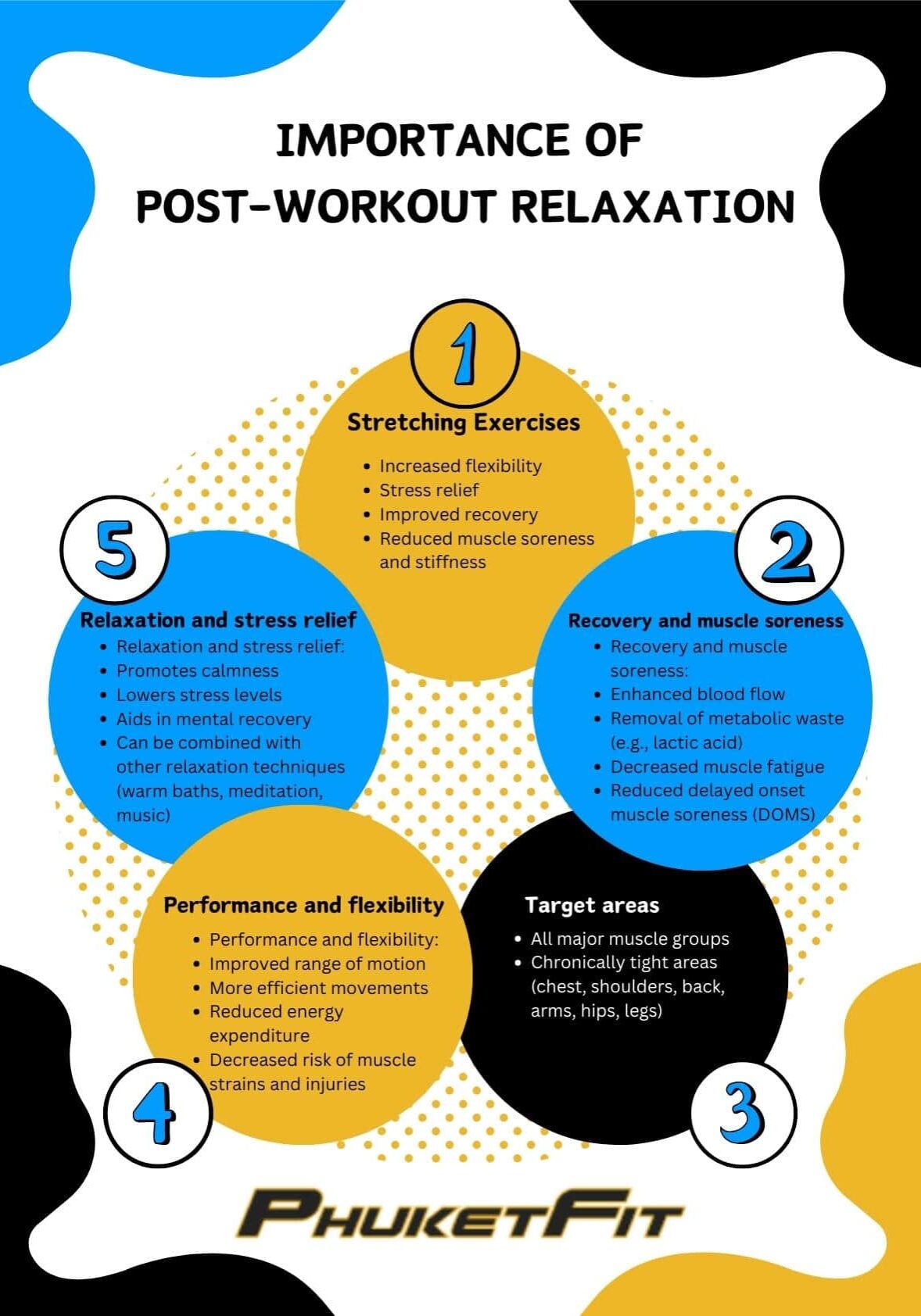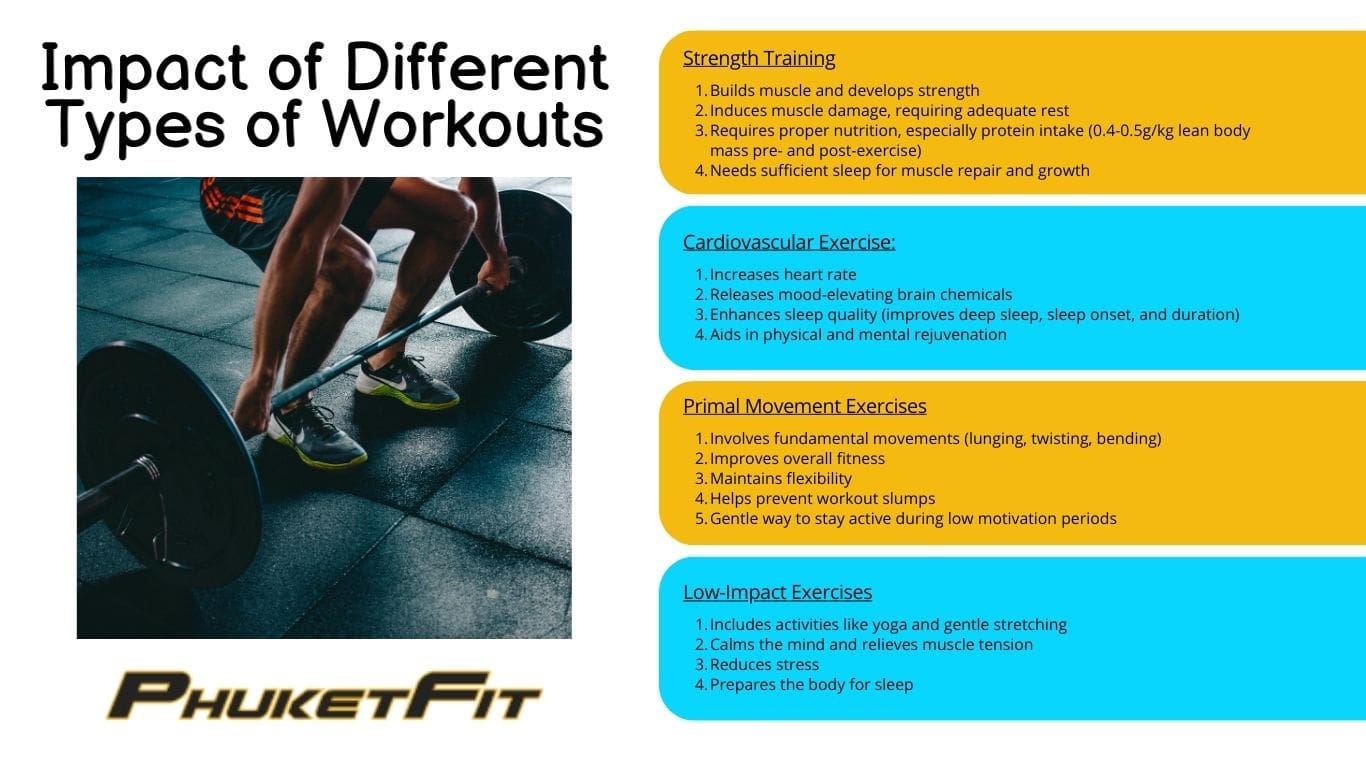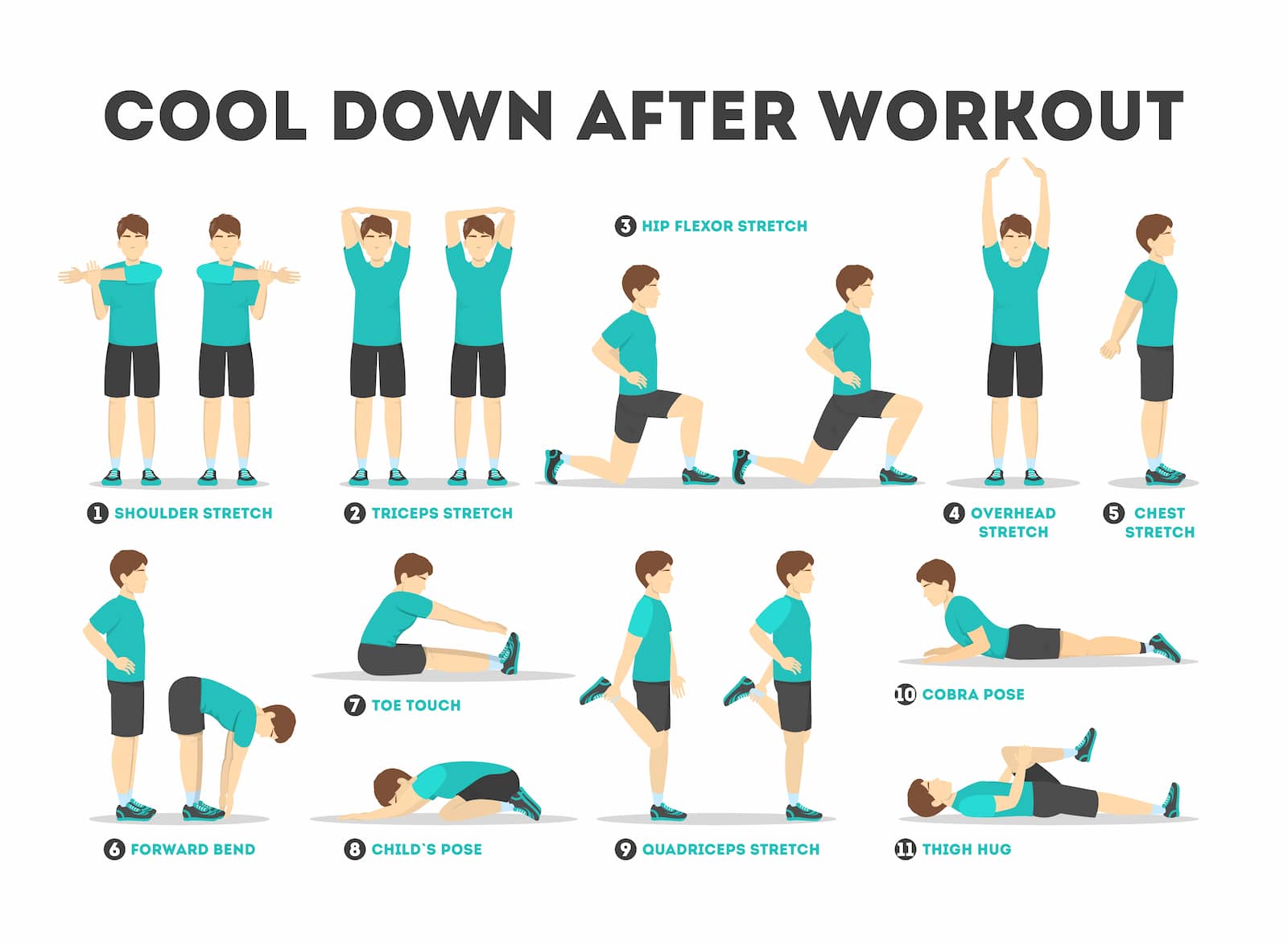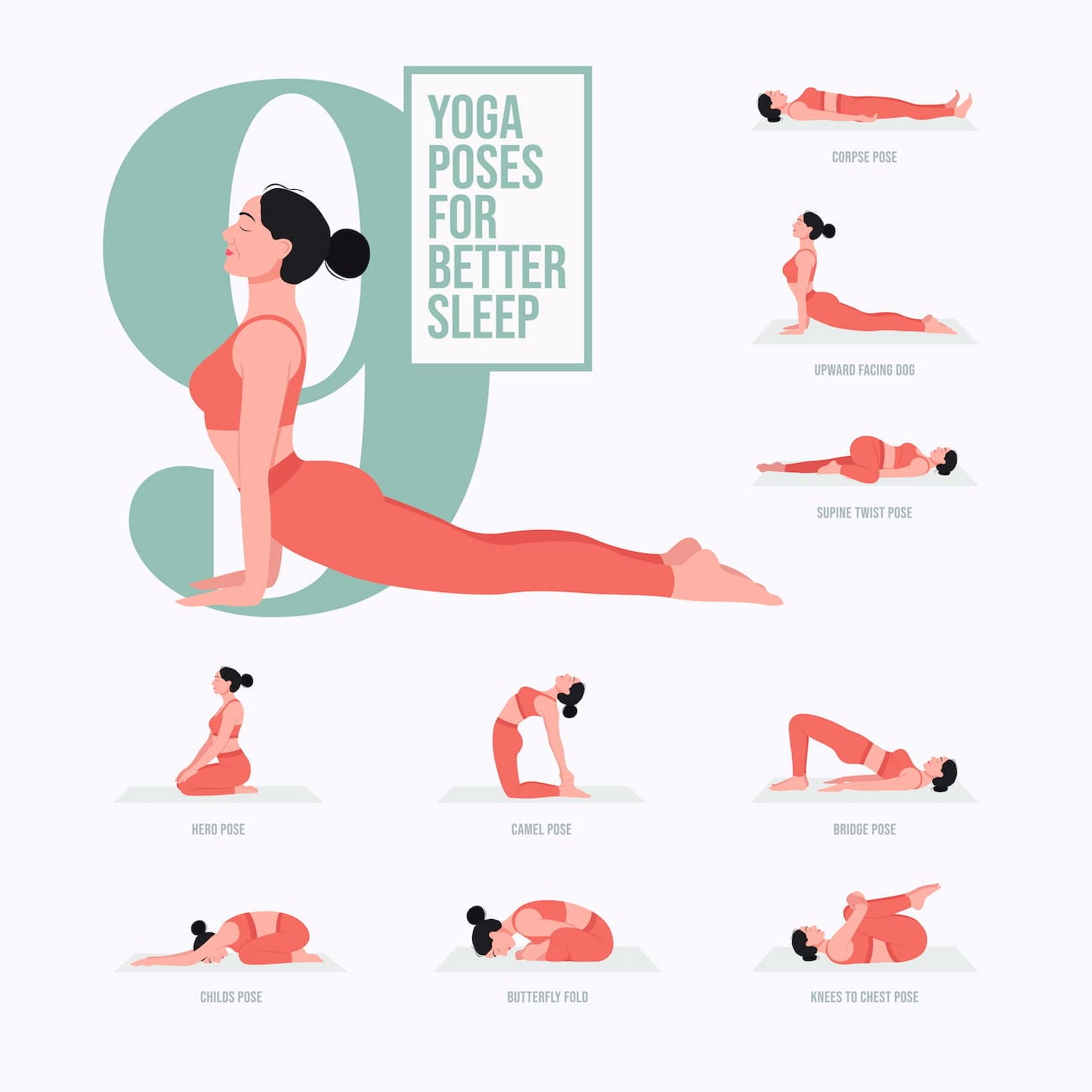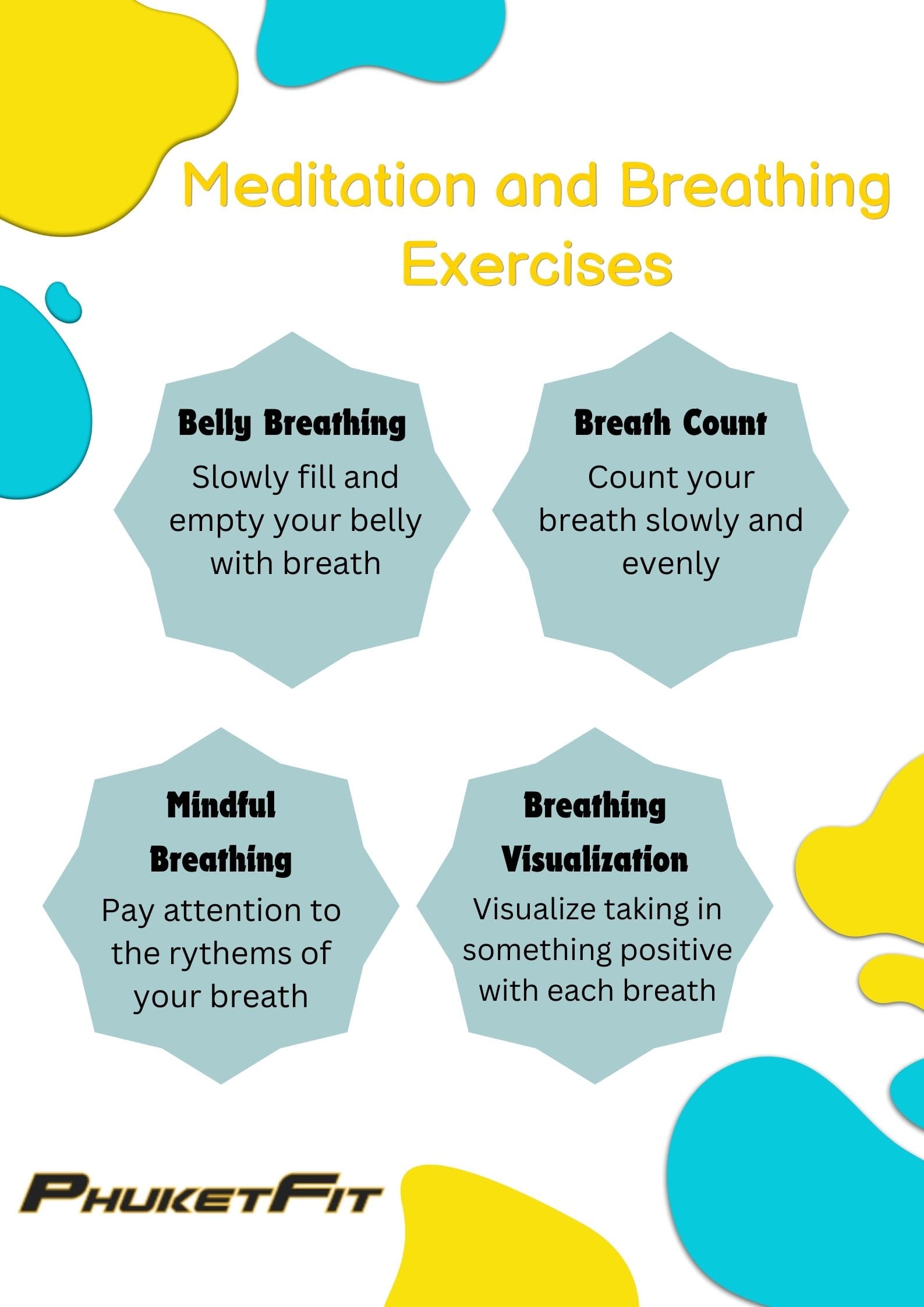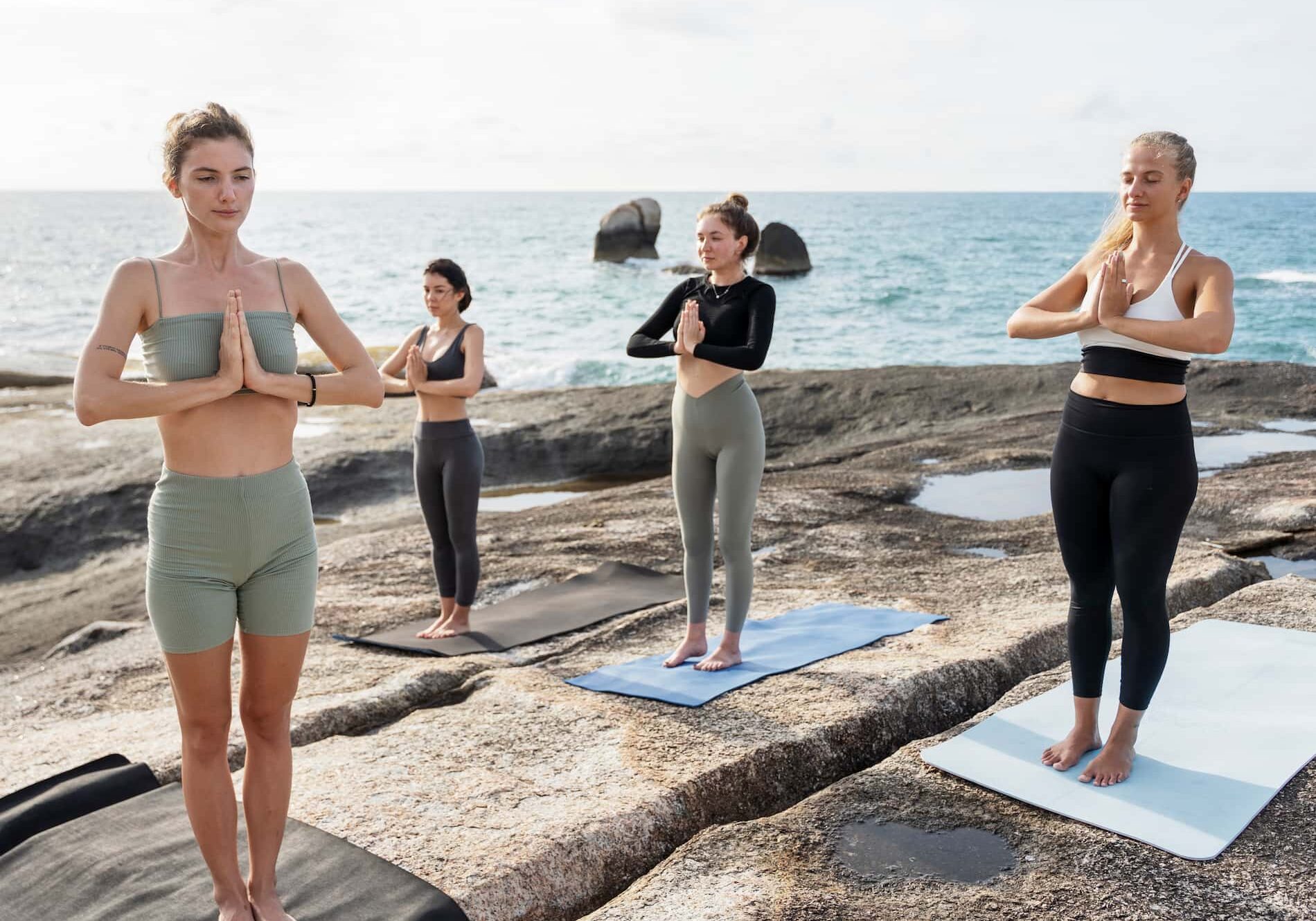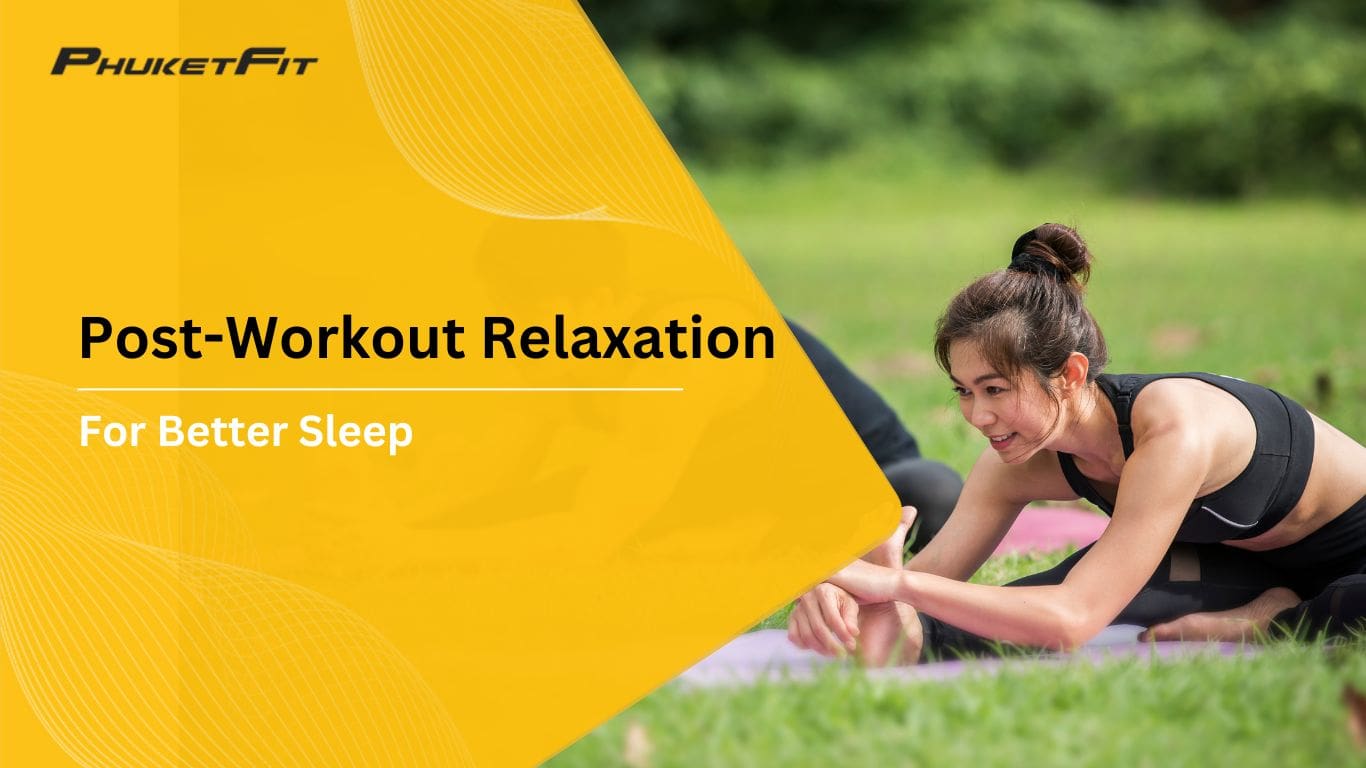
Post-Workout Relaxation for Better Sleep
Struggling to get quality rest after a vigorous workout? Research done by Cureus on The Effect of Physical Activity on Sleep Quality and Sleep Disorder in August 2023, shows that physical activity enhances sleep in several key ways. It increases melatonin production, a hormone that regulates sleep-wake cycles, which helps you fall asleep faster and improves sleep quality. Exercise also reduces stress, a common barrier to restful sleep, and boosts mood, creating a positive feedback loop that encourages more physical activity and better sleep. Additionally, physical activity helps regulate body temperature; the natural drop in temperature that follows exercise facilitates easier sleep onset but timing is crucial as research from Harvard Medical University in July 2023 stated that exercising in the morning or afternoon may be more beneficial for sleep compared to vigorous nighttime exercise, especially exercise ending 1 h before bedtime as well as high intensity exercises for more than 90 minutes in the evening has been associated with difficulty in sleeping.
Dive into this guide to post-workout relaxation and discover how to enhance your sleep and recovery. Let’s get your muscles relaxed and your nights restful!
What is the Importance of Post-Workout Relaxation?
Post-workout relaxation is a crucial element in any fitness regimen, significantly impacting overall well-being and performance. Incorporating relaxation techniques and stretching exercises after a workout can yield numerous benefits, enhancing both physical and mental health.
Targeting Major Muscle Groups
Stretching addresses all major muscle groups, including often-tight areas like the chest, shoulders, back, arms, hips, and legs. This comprehensive approach helps in reducing muscle stiffness and enhancing flexibility, making the post-exercise period more comfortable and effective.
Overall, stretching is a valuable component of a well-rounded fitness regimen, offering physical and mental benefits that support recovery, performance, and overall well-being.
Faster Recovery and Reduced Muscle Soreness
Stretching after exercise plays a crucial role in speeding up recovery by boosting blood flow to the muscles and aiding in the removal of metabolic waste products, such as lactic acid. This improved circulation helps decrease muscle fatigue and accelerates the return to normal functioning. Additionally, stretching alleviates delayed onset muscle soreness (DOMS), the discomfort experienced hours to days following intense exercise, facilitating a smoother recovery process.
Enhanced Performance and Flexibility
Incorporating consistent post-workout stretching into your routine can significantly improve overall flexibility and range of motion. Greater flexibility enhances movement efficiency and reduces energy expenditure during physical activities, which in turn improves athletic performance and endurance. Furthermore, stretching helps prevent muscle strains and injuries by increasing the range of motion and addressing tight areas.
Promotion of Relaxation and Stress Relief
Post-exercise stretching contributes to relaxation and stress relief. When combined with other calming practices such as warm baths, meditation, or soothing music, stretching helps lower stress levels and fosters a sense of calmness. This holistic approach not only aids in physical recovery but also provides a mental break, allowing you to reflect on the workout and prepare for future activities.
What is the Impact of Different Types of Workouts on sleep?
The impact of different types of workouts on sleep and overall recovery varies, with each form of exercise offering distinct benefits. Understanding how various workouts influence the body can help individuals optimize their fitness and relaxation routines.
Strength Training
Strength training, which includes weightlifting and resistance exercises, is integral for muscle growth and strength development. However, it also induces muscle damage that requires adequate rest and recovery for optimal repair and growth. Effective recovery strategies include consuming the right nutrients, particularly proteins, before and after exercise. A 2017 review in the Journal of the International Society of Sports Nutrition recommends protein dosages of 0.25 grams per kilogram of lean body mass both pre- and post-exercise to maximize muscle gain from strength training. Adequate sleep is crucial for muscle recovery, as muscle fibers damaged during workouts need time to repair. Without proper rest, muscle growth and strength gains are compromised. Hence, integrating strength training with a robust sleep and recovery plan is essential for achieving fitness goals.
Cardiovascular Exercise
Cardiovascular exercises like running, cycling, and swimming are known to increase heart rate and promote the release of brain chemicals that act as natural painkillers and mood elevators. These activities can significantly enhance sleep quality by improving deep sleep, sleep onset, and overall sleep duration. Regular cardio activity is beneficial for those looking to improve the restorative quality of their sleep cycles, aiding in both physical and mental rejuvenation.
Low-Impact Exercises
Low-impact exercises such as yoga and gentle stretching can also positively affect sleep quality. These activities help calm the mind, relieve muscle tension, and reduce stress, making them ideal for preparing the body for sleep. Incorporating low-impact exercises into a workout regimen can facilitate relaxation and enhance overall sleep quality.
Primal Movement Exercises
Primal movement exercises, which involve fundamental movements like lunging, twisting, and bending, mirror the activities our ancestors performed in daily life. These exercises are not only effective for overall fitness but also play a role in maintaining flexibility and preventing workout slumps. They can be a gentle way to stay active, especially during periods of low motivation or recovery.
How Importance is Post-Workout Recovery?
Post-workout recovery is vital for maintaining physical and mental health. Following a structured post-workout routine and nutrition plan helps prevent injuries, burnout, and ensures that the body is restored and ready for the next workout. Tools like workout notepads can aid in tracking recovery needs and identifying patterns that signal overtraining or inadequate recovery, thus helping individuals tailor their routines for optimal performance. By understanding the impact of different types of workouts on sleep and recovery, individuals can create balanced exercise regimens that support both their fitness goals and overall well-being.
What are some of the Effective Post-Workout Relaxation Techniques?
Post-workout relaxation is essential for both physical recovery and mental well-being. Incorporating various relaxation techniques into your post-exercise routine can help enhance muscle recovery, reduce stress, and improve overall sleep quality. Below are some of the effective techniques.
Cool-Down Stretching
Importance of Cool-Down Stretching
Cool-down stretching is crucial for returning your body to homeostasis after a workout and facilitating a smooth transition back to your daily routine. This type of stretching helps build overall flexibility, relieve stress, and may reduce post-exercise muscle soreness and stiffness. The best time to stretch is immediately after a workout when your muscles are still warm.
Recommended Stretches
A cool-down routine can be tailored based on the muscles you've worked that day and should generally take between 10 to 20 minutes. Some recommended stretches include the Child's Pose, which gently stretches the back and hips, and the standing quad stretch, beneficial for easing muscle tension and stimulating blood flow, particularly after running.
Yoga
Yoga is a versatile practice that combines breath and movement to promote relaxation and well-being. It not only enhances flexibility and range of motion but also reduces muscle tension through mindful breathing and movement. Incorporating yoga into your post-workout routine can serve as an effective alternative to traditional stretching, offering similar benefits.
Simple Yoga Poses
For those new to yoga, starting with simple, gentle poses is advisable. Child's Pose is an excellent beginner pose that helps in relaxing the back and hips. Practicing yoga under the guidance of a certified instructor can also be beneficial, although many poses can be performed at home or even at your desk.
Advanced Stretching Techniques
For experienced athletes looking to elevate their recovery, advanced stretching techniques can be quite beneficial. These often involve the use of additional equipment or partner-assisted stretches.
Foam Rolling and Full-Body Recovery Devices
Foam rolling can complement your stretching routine by further reducing muscle tension and enhancing blood flow. Additionally, full-body recovery devices like massage guns, compression garments, and whole-body vibration devices can significantly aid in muscle recovery and tension relief. These technologies provide alternatives to manual stretching and can help accelerate recovery times.
Meditation and Breathing Exercises
Meditation is an effective stress reliever that can help calm both the body and mind, aiding in the post-workout recovery process. Different meditation techniques can be tried to find what works best for you.
Breathing Exercises
Breathing exercises, such as diaphragmatic breathing, stimulate the vagus nerve, essential for parasympathetic nervous system regulation. This type of breathing can be particularly beneficial for calming the body and mind, even in ongoing stressful situations. Incorporating these practices into your post-workout routine can help build resilience over time and promote better sleep. By integrating these effective post-workout relaxation techniques into your routine, you can ensure a more holistic approach to fitness and well-being, aiding both physical recovery and mental relaxation.
Nutrition and Hydration Post-Workout
Post-workout nutrition plays a critical role in the recovery process, ensuring the body receives the necessary nutrients to repair muscles, replenish glycogen stores, and rehydrate effectively. Adhering to the "3 R's"—Repair, Refuel, and Rehydrate—can help optimize recovery and prepare the body for subsequent training sessions.
How to Create a Sleep-Friendly Environment?
Incorporating effective strategies to create a sleep-conducive environment is essential for maximizing post-workout rest and overall sleep quality.
Optimize Your Sleep Environment
Creating a comfortable and soothing sleep environment can significantly enhance sleep quality. Make sure your bedroom is cool, dark, and quiet. Research by Dr. David.R in march 2024 said that the cool temperature, around 65°F (18.3°C) to 68°F (20°C), is often ideal for most people. Minimize light exposure by using blackout curtains or shades to block out external light sources like streetlights, which can disrupt sleep. Additionally, improving air quality in your home can also be beneficial.
Establish a Consistent Sleep Schedule
Consistency is key to regulating your circadian rhythm and optimizing recovery. Set a regular sleep schedule by going to bed and waking up at the same time every day, even on weekends. This helps your body anticipate rest, promoting deeper and more restorative sleep.
Practice Relaxation Techniques
Incorporating relaxation techniques such as deep breathing exercises, meditation, and progressive muscle relaxation can promote a state of calm before bedtime. Breathing exercises, in particular, signal to your body and mind that it's time to wind down. White noise meditation can also be helpful, creating a calming auditory environment that masks external disturbances and lulls the mind into tranquility.
Limit Electronic Devices
Turning off electronic devices before bed is crucial to creating a tranquil sleep environment. The blue light emitted by screens can interfere with melatonin production, which is essential for sleep. Dimming the lights and avoiding screens at least an hour before bed can further enhance your readiness for sleep.
Maintain Proper Sleep Hygiene
Good sleep hygiene involves optimizing pre-bedtime routines to prepare for sleep and improving bedroom environments to make them sleep-promoting. Avoiding caffeine and large amounts of fluids late in the evening can prevent disruptions such as nocturia, which is excessive urination during the night. A balanced diet and proper hydration are also important for quality sleep.
Utilize Light Therapy
Light therapy, such as red-light therapy, can improve sleep quality and recovery without suppressing melatonin production. However, bright-light therapy may impact your sleep/wake cycle and should be used cautiously. By adopting these strategies and creating a sleep-conducive environment, you can enhance your post-workout relaxation and promote more restful and rejuvenating sleep.
What are some of the Common Mistakes to Avoid?
Avoiding these pitfalls can improve your post-workout recovery and sleep.
